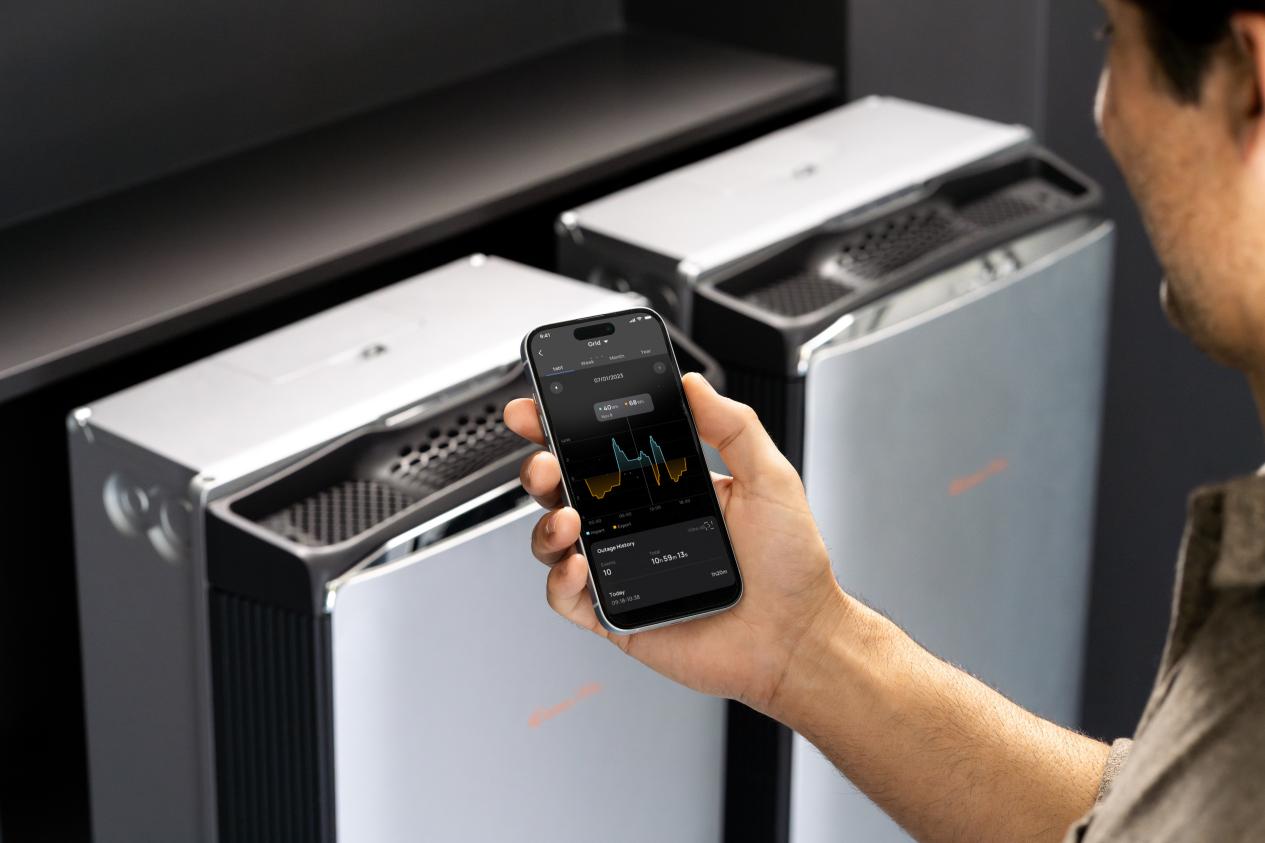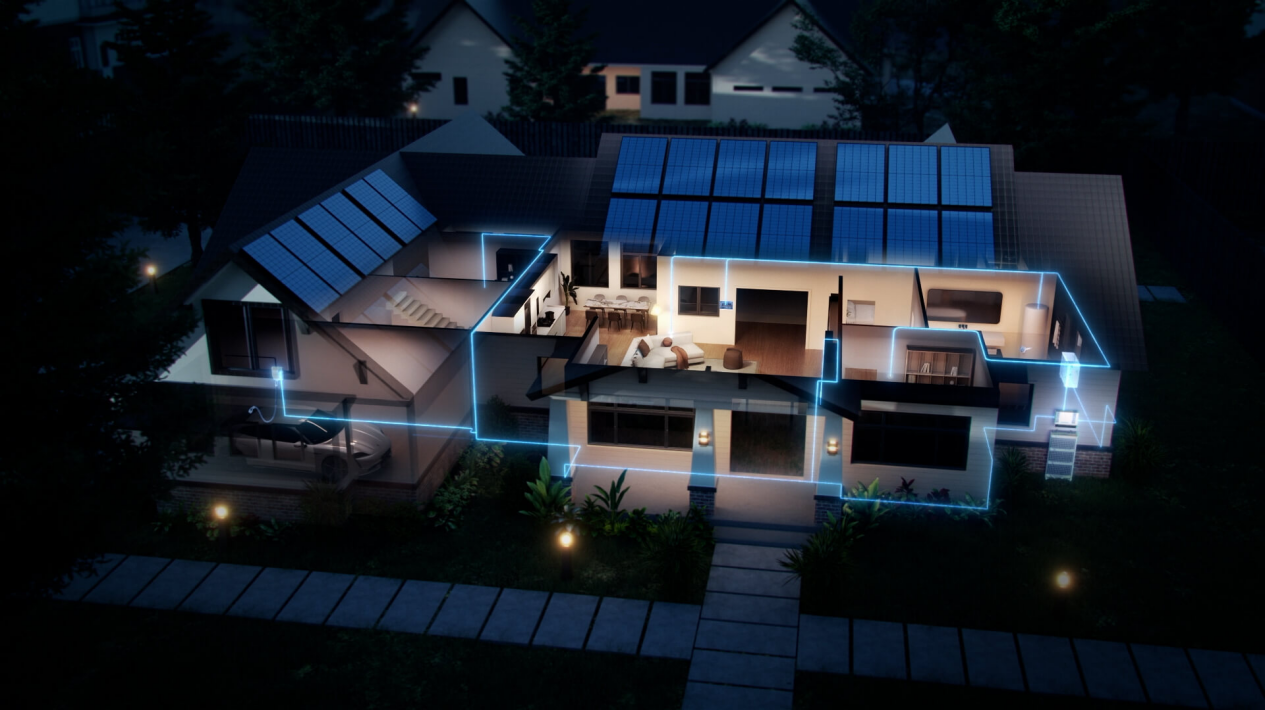How AI Is Reshaping Solar Energy Use for Smart Homes
- What Makes AI Important for Solar Energy?
- Why AI-Driven Energy Storage Is a Game-Changer
- How AI Supports Solar Energy Integration with the Grid
- Can AI Help You Choose the Right Solar Energy Setup?
- What Is the Role of AI in Solar Energy Maintenance?
- Where the EcoFlow OCEAN Pro Makes a Difference
- What Are the Future Trends in AI and Solar Energy?
- Shaping the Future of Solar Energy, One Smart System at a Time
- FAQs About AI-Enhanced Solar Energy
AI is quietly changing how we use solar energy. For large-scale home energy users, the impact is real and measurable. AI tools now help manage storage, predict usage, and stabilize backup power. In this article, we explore how artificial intelligence is reshaping solar energy systems and why that matters for modern energy independence.
What Makes AI Important for Solar Energy?
Solar energy production depends on the sun, but AI makes it more predictable and useful. Cloud patterns, energy consumption, and battery capacity vary every day. AI helps solve that.
Here’s how:
- It predicts solar output using weather data.
- It learns when your household uses the most power.
- It schedules charging and discharging more efficiently.
That makes your solar energy system smarter and cheaper to run.
AI also provides better forecasting tools. Instead of relying on rough estimates, systems now learn from months of past usage and weather. You get a tailored, location-specific view of your energy profile. This helps both planning and optimization.
Why AI-Driven Energy Storage Is a Game-Changer
Energy storage matters when sunlight is low. AI makes backup systems smarter. Instead of fixed rules, AI adapts.
Key benefits include:
Reducing waste: AI limits overcharging or idle time.
Avoiding blackouts: AI spots weak grid conditions.
Cutting cost: AI charges batteries during low-rate hours.
AI is fast in operation as well. In the event that your panels lose because of shading or clouding, AI transfers the energy you’ve stored simultaneously without your notice. In fact, the U.S. saw over 180 major grid disturbances in 2023, highlighting the need for smarter, faster response systems. This is an enhancement to the typical control system.
In bigger solar energy storage homes, AI load prioritization becomes possible. Prioritization could, for instance, be done for the refrigerator and the medical appliances. Non-essential systems could be delayed. This kind of prioritization eliminates complete shutdowns.
How AI Supports Solar Energy Integration with the Grid
More homes now feed energy back into the grid. But that’s not always smooth. Grids aren’t built for sudden solar surges.
AI helps the grid by:
- Balancing demand and supply in real time
- Predicting when your system can sell excess power
- Coordinating with utility companies for peak-time exports
Some systems even participate in Virtual Power Plants (VPPs). These are networks of homes that act like a single, massive generator. AI manages this without human effort.
Large solar energy setups benefit from these AI tools the most. Homeowners with bigger battery banks and more solar panels can generate revenue while helping with grid stability. In places with time-of-use rates or demand charges, this coordination saves money.


Can AI Help You Choose the Right Solar Energy Setup?
Choosing a solar system is tough. AI tools now simplify that. Some platforms let you enter your energy bills, home size, and region. Then they simulate:
System size
Backup battery needs
Solar panel output across the year
You get clear numbers before you spend any money. For large home setups, this reduces risk and helps scale future upgrades.
More advanced tools also compare installation options. They use satellite imaging, shading analysis, and local weather history to create 3D models of your roof. This helps installers build more accurate plans and ensures you get the best return on your solar energy investment.
What Is the Role of AI in Solar Energy Maintenance?
Solar systems need care. AI now tracks faults before they become failures.
For example:
It detects shading or panel failures
It alerts users before batteries degrade
It spots inverter issues based on power flows
This saves time and prevents power loss. It also avoids expensive emergency repairs. AI acts like a virtual technician that never sleeps.
In large setups, maintenance delays can be costly. AI cuts downtime by flagging early issues like low voltage or mismatched power flow. With predictive diagnostics, you can replace parts before they fail. This is vital for families who rely heavily on solar energy year-round.
Where the EcoFlow OCEAN Pro Makes a Difference
For homes that need reliable solar energy backup, the EcoFlow OCEAN Pro offers a real advantage. It’s built-in AI engine adjusts output based on your habits and local weather. It supports smart grid sync, fast solar charging, and long-duration storage.
With scalable capacity, it’s a fit for large households. It also includes app-based monitoring with predictive usage insights. Compared to typical backup systems, it responds faster and adapts more intelligently.
One of the standout features is its ability to work seamlessly during peak hours. When the grid is stressed, the OCEAN Pro automatically isolates your home and continues operation without delay. This makes it ideal for users who require continuous, high-load power security.
What Are the Future Trends in AI and Solar Energy?
AI keeps improving. Future systems may:
Automate participation in local energy markets
Use real-time data to shift home loads (e.g., turn off HVAC briefly to save energy)
Connect to EVs and smart appliances
Homes won’t just consume energy, they’ll manage and share it smartly. AI is the bridge that connects solar energy to all of that.
We also expect AI to drive new innovations in community-level energy balancing. Your neighborhood could run on shared, AI-synced solar power, each home adjusting in sync with the others to keep costs and emissions low.


Shaping the Future of Solar Energy, One Smart System at a Time
No longer a demo tech, AI is driving the new wave in solar. For bigger homes with bigger energy requirements, it’s becoming the norm fast. With the likes of the EcoFlow OCEAN Pro, AI is the driving player. The intelligent solar system is here, and the advantage is yours for the taking. Upgrade or get a rugged system for solar, and now’s the time for you to look at AI-supported systems.
FAQs About AI-Enhanced Solar Energy
Q1: How does AI improve solar energy reliability?
Indicates the amount of sunlight available and how the power is utilized or stored. Automatically reacts to conditions like clouds or peak consumption of power and avoids spurious shutdowns. It is possible for it to transfer the utilization of the power to points where the sun is highly strong. This was impossible before. It is now possible for the system to be more dependable under any weather conditions.
Q2: Can AI systems exist without internet connectivity?
Some AI features depend on the cloud for updates and forecasting. But local controls work even if your Wi-Fi is offline. Devices like the EcoFlow OCEAN Pro have onboard intelligence that performs simple logic without the internet. This keeps the main functions working during power outages. For completely standalone behavior, local and cloud AI are significant.
Q3: Is AI safe in photovoltaic systems?
In fact, most AI-backed systems use encryption, two-factor app authentication, and stringent data thresholds. It’s still worth taking advantage of new-age applications and password protection so as to mitigate any remote threats. As AI develops further, so do defense strategies. Homeowners must continually look for software upgrade history.
Q4: Does AI lower your electricity bill?
They peak-to-off-peak matching use, shift load, and do not get charged for waste. At the end of the day, this could save a lot at bill time, especially for houses with bigger photovoltaic installations. A few users get 15-30% bill savings with AI switching. Savings are based upon use profiles and area rates.
Q5: How do I verify if AI is running within my system?
You’ll find learning patterns or prediction tools within the system monitor. They come with energy prediction, prudent warnings, and utilization optimization reports. You might also find seamless transitions between running off the sun, battery, and grid. In case you remain unsure, ask your installer for a system performance report.
Home Energy Solutions
For press requests or interview opportunities, reach out to our media team
media.na@ecoflow.com